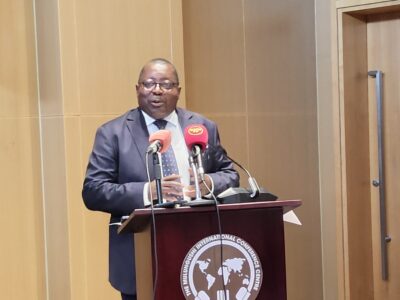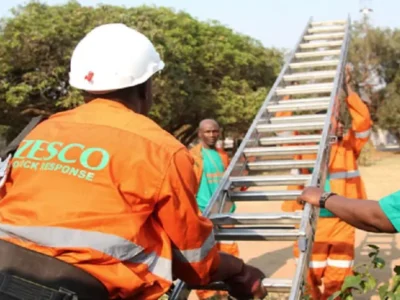The Lusaka Water and Sanitation Company (LWSC) has implemented water rationing across the city and surrounding areas due to the ongoing power crisis, which has severely impacted its operations.
Jilly Chiyombwe, Managing Director of LWSC, addressed journalists at a media briefing in Lusaka on Monday, announcing that the decision to ration water supply came into effect on May 12, 2024.
Chiyombwe attributed the water rationing to the ongoing load management by ZESCO and the adverse effects of drought on underground water sources in Southern Africa.
“The combination of electricity supply constraints and declining underground water levels due to drought has significantly hampered our ability to produce and maintain a consistent water supply, thereby affecting service delivery to our customers,” Chiyombwe explained.
He disclosed that LWSC’s regular production capacity stood at approximately 330 million liters of water per day, while the demand was around 480 million liters.
Moreover, 53 percent of the total water supply comes from the Kafue River, categorised as surface water, while 47 percent was sourced from groundwater through strategically positioned boreholes.
“Due to the load management programmes, LWSC is losing over 8 hours of production time daily, resulting in a reduction of supply hours from 18 to 10 per day,” Chiyombwe highlighted.
He stated that the company’s vulnerability to power disruptions, as both surface and groundwater pumping systems rely on electricity from the ZESCO grid.
“In response to the challenges posed by climate change and hydroelectric power availability, LWSC is adopting solar PV as an alternative energy source, with five sites already powered by solar energy to mitigate the effects of load shedding,” Chiyombwe stated.

Read More: Water shortages hit Mufulira, as water management company blames ‘fatigued pumps’
Additionally, LWSC had installed diesel generators as backup units at all sewer pumping stations, albeit at a significant cost.
Chiyombwe underscored the proactive measures taken by LWSC to manage the water crisis, including engaging with ZESCO to minimize the impact of load shedding and exempting critical facilities from power cuts.
“We are committed to preserving and managing groundwater resources through water rationing to ensure equitable distribution and sustainability during this challenging period,” Chiyombwe affirmed.
He outlined LWSC’s focus areas, including ongoing communication with ZESCO, and the exemption of critical facilities such as water treatment plants and booster stations from load shedding.
WARNING! All rights reserved. This material, and other digital content on this website, may not be reproduced, published, broadcast, rewritten or redistributed in whole or in part without prior express permission from ZAMBIA MONITOR.











Comments